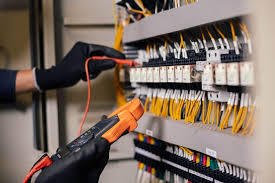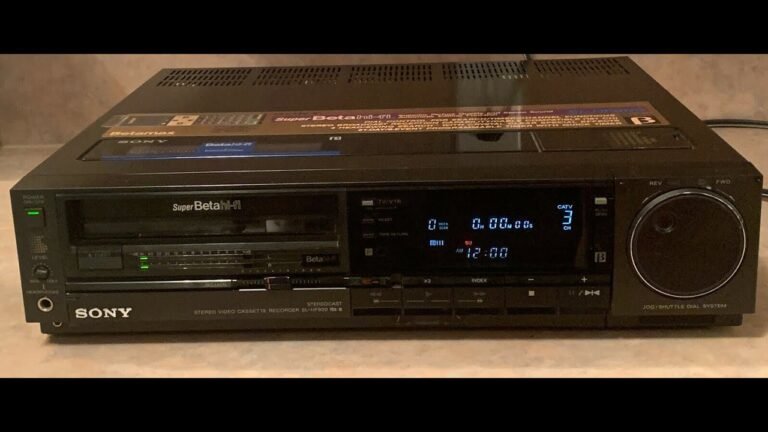Securing Electrical Supply For Critical Operations
These operations, from hospitals to data centers to manufacturing plants to transportation hubs, depend on a stable and secure electrical supply. Any disruption in electricity can lead to severe consequences, including operational delays, financial losses, or even risks to human safety. Therefore, securing electrical supply for critical operations is essential to ensure smooth performance, safety, and productivity.
Importance of Reliable Electrical Supply
Critical operations cannot afford downtime. In industries like healthcare, power outages can put lives at risk, especially in hospitals where medical equipment relies heavily on continuous electricity. Likewise, data centers manage vast amounts of digital information, and an electrical disruption can lead to data loss or system failure, affecting businesses and individuals globally. Thus, ensuring uninterrupted electrical supply in these environments is not just a technical requirement but a matter of safeguarding vital functions.
Backup Power Systems
One of the most effective ways to secure electrical supply for critical operations is through backup power systems. Generators and Uninterruptible Power Supplies (UPS) are commonly used to provide electricity in the event of a primary power failure. Backup generators typically run on diesel or natural gas and can supply power for hours or even days, depending on the fuel supply. On the other hand, UPS systems offer immediate power for short periods, usually long enough to safely switch to generators or restore the main power supply.
Redundant Power Supply Systems
Redundancy is another critical concept in securing electrical supply. A redundant power supply system means having multiple sources of power that can be utilized if one source fails. This is especially important in data centers and manufacturing facilities where even a few seconds of power loss can cause significant issues. By designing the power supply with built-in redundancies, businesses ensure that one failure doesn’t lead to complete shutdowns. Dual power grids, multiple transformers, and secondary generators are some examples of how redundancy can be implemented.
Regular Maintenance and Testing
No matter how sophisticated the power systems are, they require regular maintenance and testing to ensure their reliability. Over time, electrical components can wear out or become outdated, making them prone to failure. Businesses can identify potential issues by scheduling regular inspections before they lead to failures. Testing backup systems like generators and UPS units is crucial to confirm they will function properly during an emergency. Routine maintenance not only extends the life of electrical equipment but also reduces the risk of unexpected breakdowns.
Monitoring and Control Systems
Real-time monitoring and control systems are essential to secure electrical supply for critical operations. Advanced electrical monitoring systems allow organizations to track the performance of their power supply in real time. These systems can detect abnormalities such as voltage fluctuations, overloads, or power surges and respond accordingly. Automation also plays a significant role in ensuring electrical stability. Automated systems can quickly switch between power sources or shut down non-essential systems during a power crisis, preventing damage to critical equipment.
Role of Renewable Energy
As the world moves toward more sustainable energy sources, renewable energy systems are becoming increasingly important in securing electrical supply for critical operations. Solar panels, wind turbines, and other renewable energy technologies provide a reliable and eco-friendly source of electricity. While these systems may not completely replace traditional power sources for critical operations, they offer a valuable alternative, especially during long-term power outages. Integrating renewable energy with conventional power systems can create a more resilient and sustainable electrical supply network.
Importance of Energy Storage
Energy storage solutions are another critical factor in securing electric supply. Batteries, like those used in UPS systems or large-scale energy storage facilities, can store excess power for later use. In an electrical outage, stored energy can keep critical operations running. Recent advancements in battery technology have made energy storage more efficient and accessible. With renewable energy, energy storage can reduce reliance on traditional power grids, making critical operations more self-sufficient and secure.
Cybersecurity for Electrical Infrastructure
In today’s digital age, securing electrical supply is not only about physical infrastructure but also about protecting it from cyber threats. Cyberattacks on power grids and electrical systems can cause widespread outages, disrupting critical operations. For example, a cyberattack on a hospital’s power system could disable life-saving medical equipment. Organizations must implement strong cybersecurity measures to protect their electrical infrastructure from hackers. This includes securing control systems, encrypting data, and employing firewalls and intrusion detection systems to monitor suspicious activity.
Training and Preparedness
While technology plays a major role in securing electrical supply, human expertise is just as necessary. Employees responsible for managing critical operations need to be well-trained in handling power outages and other electrical issues. Regular training sessions and emergency drills help staff respond quickly and effectively during crises. This preparedness minimizes downtime and ensures the continuity of operations, even during unforeseen power interruptions. Organizations should also have clear procedures for dealing with electrical emergencies, ensuring everyone knows their role in maintaining operational stability.
Future of Securing Electrical Supply
As technology continues to evolve, so do the methods for securing electrical supply. Innovations such as smart grids, AI-powered monitoring systems, and advancements in energy storage are expected to revolutionize how critical operations are powered. Smart grids, for instance, use data and analytics to predict power demand and manage supply more efficiently. AI systems can detect potential issues before they happen and even automate responses to power outages. These technologies offer new ways to secure electrical supply and improve reliability for critical operations.
Conclusion
Securing electrical supply for critical operations is essential for the smooth functioning of industries that rely on continuous power. Backup power systems, redundancy, regular maintenance, and real-time monitoring all ensure uninterrupted power. Integrating renewable energy and energy storage solutions also adds resilience to power supply systems. Furthermore, cybersecurity, proper training, and preparedness are crucial to protecting against both physical and digital threats. As the demand for reliable power grows, so will the need for innovative solutions to secure electrical supply for critical operations.





